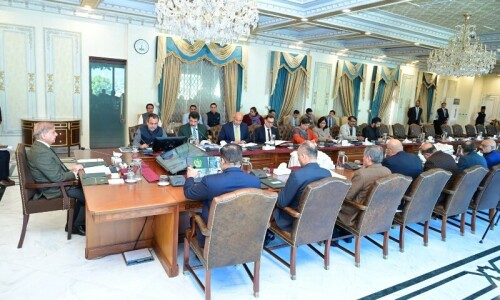IF the last few days are anything to go by, the US-Pakistan relationship is in fact as fraught as we’ve all been fearing it might be. Defence Secretary Leon Panetta implied an apology for Salala is not forthcoming; the American commander in Afghanistan said yet another attack there bore signs of the Haqqani network; and a report based on information from unnamed American officials claimed the US has been considering raids into Pakistani territory to combat militants on this side of the border. Meanwhile, a State Department report has accused Pakistan of making life difficult for American diplomats stationed here. All in all, the last few days have indicated that the mood in Washington is now one of exasperation and growing impatience.
Whatever the reasons behind it, it is unfortunate that that mood was expressed by several parts of the American government and military, both through public statements and what could have been deliberate releases of information to the US media, during a week of political crisis in Islamabad. Especially the reports about possible ground operations into Pakistan — which would be hugely damaging, given Pakistan’s position that its sovereignty not be violated — have raised suspicions of ‘leaks’ from Washington. Problematic even at the best of times, these were doubly disturbing this week, given all the other upheavals at home.
In particular, the Haqqani network issue has come to the forefront again. After each terrorist incident in Afghanistan that follows a certain pattern the US can accuse the Haqqani network and Pakistan can continue to deny that its soil was used. But the issue is no longer whether or not any given attack was launched from Pakistan. The larger picture is that this militant outfit is one of the issues that is preventing the normalisation of the relationship, and that unless it is addressed, American suspicions about Pakistani intentions will not go away. Pakistan has also officially said it will not tolerate its soil being used to launch attacks against any other country. It is time, then, to finally tackle safe havens in North Waziristan. Whether resource constraints or fear of blowback inside Pakistan, the challenges in the way of doing that now need to be addressed — with American advice and assistance. In fact, working jointly on the issue could become one way to repair ties. This is, of course, a two-way street; Friday’s attack on a check post in Upper Dir in which two Pakistani soldiers were killed is believed to have originated from across the border. Now is the time to work out a close working relationship on cross-border militancy, a project that could help rebuild the relationship in general.











































